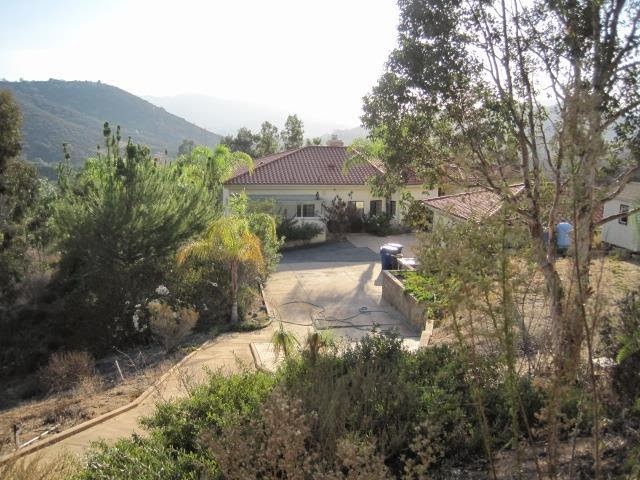"Going green"
means living in a way that's environmentally friendly. It uses less water, less
electricity, and less fuel, conserving natural resources while protecting the
environment. It also saves money on utility bills, which is something all
homeowners can appreciate. From simple to elaborate, here are a few ways to
green your house and property.
Focus On the Light
Replacing your most-used
light bulbs with CFLs will lower your electric bill while producing less heat
and lasting longer than your incandescent bulbs.
While you're at it,
consider adding dimmer switches, motion sensors, and timers for when you're
away from home in the evening. Also, keep your light bulbs clean: Dirt and
grease coats the bulbs and not only reduces the available light, but causes the
bulb to burn out sooner.
Mix Your Own Cleaners
Many commercial cleaning
products contain bleach and other harsh chemicals. Switch to natural products
and solutions you mix up yourself. Clean up hard water deposits with vinegar,
for instance, or use it to wash your windows. White vinegar mixed with hydrogen
peroxide also sanitizes countertops (killing 99 percent of E. coli).
Go Low-Flow
Low-flow showerheads and
faucet aerators (the tip that screws on to the nozzle) cost little and can save
about half the water without sacrificing water pressure. Low-flow toilets are
another option. Look for a water-saving toilet displaying the WaterSense label.
Alternatively, fill a 2-liter bottle with water and drop it in the toilet tank
to displace some of the water. This will force the toilet to use less water per
flush.
If you're in the market
for a new water heater, consider choosing a tankless water heater. It allows
you to use the same amount of water, but it heats the water only when it's
needed, so you save a lot of energy. Wrapping a conventional (tank-based) water
heater with a special insulation and insulating all the hot-water pipes also
conserves energy.
Spread the Greenery
To really green your
house and property, visit your local plant and tree nursery. Outdoors, shade
trees not only cut your cooling costs (up to 25 percent), but in the winter,
trees and shrubs also break the wind and affect your heating costs. Inside,
plants not only make a home feel more comfortable, they also help purify the
air and produce oxygen.
Reduce VOCs
Indoors and out, you're
surrounded by volatile organic compounds. VOCs are any carbon-containing
substance that "off-gasses" (meaning it becomes a vapor, or
evaporates) at room temperature. VOCs pose a significant health hazard. Paints,
varnishes, cigarette smoke, pesticides, gasoline and other fuels, various glues
and adhesives, cosmetic products, automotive exhaust, even cleaning products
are but a few of the items that contain VOCs. When painting, look for low VOC
paints, particularly those featuring the Green Seal.
Look for the Energy Star Logo
Getting rid of old
appliances and upgrading to new, energy-efficient models can save you a
significant amount of money. The EPA suggests replacing any appliance older
than 10 years. Select models displaying the Energy Star logo to ensure energy
efficiency.
Plant a Garden
Gardening can be a
soothing activity, but this project also ensures you have healthy food.
Home-grown food costs drastically less, enhances the outdoor environment, and
reduces the environmental impact of commercially-bought food. Even if you have
a small property, you can use containers and hanging devices to maximize your
growing space.
Reduce Your Need for Paper
Register for paperless
billing with utility and finance companies, and stop getting as much
unsolicited mail as possible. The Federal Trade Commission offers a guide on
how to "just say no" to junk mail.
Use Reclaimed Wood
Have a DIY project
needing wood? "Used" wood is environmentally friendly and creates a
beautiful look. Salvaged lumber can be used anywhere regular wood is used. You
can even get creative and build a fence with wood pallets, for instance.
Move the Air
Insulating and sealing
your home is critical. Another simple project to lower your heating and cooling
costs is installing ceiling fans. In the winter, set the rotation to push warm
air downward; in the summer, switch the blade rotation to draw warm air up
instead. Moving air makes it feel cooler in the summer as well, allowing you to
keep the thermostat a little higher.
As you green your home
and lifestyle, be on the lookout for additional incentives. You may be eligible
for tax benefits for some energy-saving projects. Going green doesn't have to
be expensive, and it's always rewarding.
Your Local San Diego Real Estate Expert,




























.JPG)




























